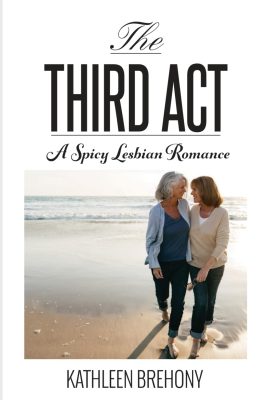A mother’s wish for her daughter brought this guidebook into being; in it, author Lisa Boucher recounts her struggles and conquest of alcoholism, with specific advice for women trapped in the clutches of the disease.
Boucher provides ample autobiographical proof of her addiction. When growing up, her mother was “drowning in booze” and many childhood memories center on her mother wrecking the car, burning the supper, or just being nonfunctional. Her father reacted by acting the tyrant, using fear tactics in hopes that he could control his wife’s drinking. By the time she was twelve, Boucher was smoking, using pot, and drinking. Her first early marriage ended in divorce.
Most alcoholics begin slowly, perhaps drinking only on weekends, using booze as a reward, imagining the warm glow that the drink can provide and gradually spreading weekends out to include the entire week. It took Boucher years, and a dedicated, disciplined adherence to the 12 Step program, to realize that she was better off without drinking.
Ultimately, she says, alcoholics have a thinking problem – distortion, delusion, and denial constantly crowd in, and drinking suppresses those negative feelings. Her book focuses on women with alcohol addiction, and the first story in her collection of sobriety is perhaps the most poignant: her mother’s account of her years of alcoholism and road to recovery. After a rewarding phase of sobriety and dedication to helping others, her mother began to urge Boucher to chronicle her own experiences on the path up from the bottom.
Boucher’s work provides direct advice delivered in an accessible manner by someone who has walked the walk to recovery and is well qualified to talk the talk. She understands, for example, that some people can control their drinking, but she offers many clues as to how that perception can also be a deception. She urges a realistic approach: to quit drinking; you have to prepare yourself for the possibility of “losing friends, maybe losing your marriage, maybe losing everything.” Thus far, she has enjoyed nearly 30 years of sobriety spent in a professional and personal quest to assist other women who are carrying the burden of alcoholism. Her journey has led her to present ten stories from other women like herself, whose lives are peppered with violence, arrests, loss of jobs, partners and self-esteem, who now can proudly announce a “sobriety date” and a recovered existence.
Boucher examines the particular problems of women in the struggle against alcoholism, though her book would have realistic outreach for men also. She writes from hard experience that will be recognizable to anyone who has flirted with or entirely fallen for the false promise of the bottle. Her book can and should be read by women in the throes of the disease as well as those who seek to counsel and assist their sisters in need.











Leave A Comment